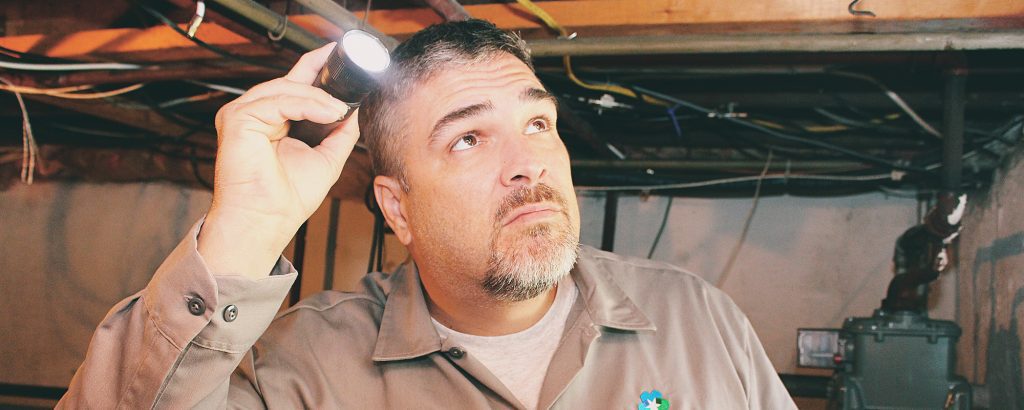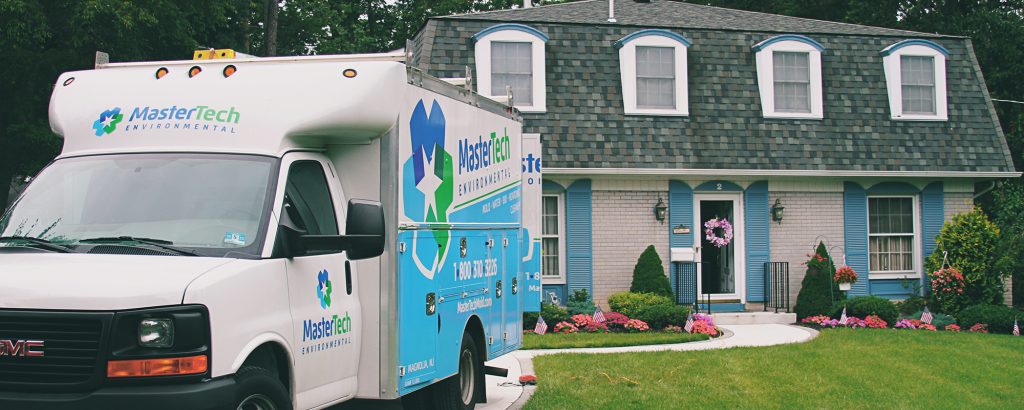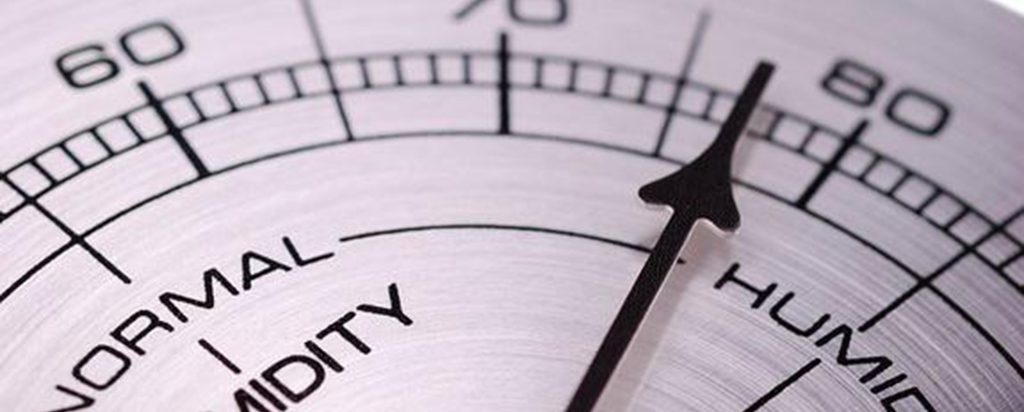The ideal indoor relative humidity level for homes in New Jersey is between 30% -50%. Higher humidity levels encourage mold growth and can cause property damage.
How Can Humidity Damage My NJ Home?
High humidity isn’t just uncomfortable. Unaddressed humidity issues can mean serious consequences. Over time, moisture buildup from excess indoor humidity can cause serious repair issues for your NJ home. From seeming minor issues like pealing paint to more problematic issues like widespread mold damage, if you have elevated indoor humidity in your home, you could be facing expensive repairs down the road if you do not address the humidity.
Problems Caused by Excessive Humidity:
Mold Growth- You do not need a major leak or flood to have mold. Sometimes, humidity or dampness (water vapor) in the air can supply enough moisture to encourage and sustain mold growth. Mold begins to develop when spores travel to and land on warm and moist surfaces in a humid environment. With an adequate moisture source, mold spores begin to germinate, spread and contaminate your building materials. Indoor mold growth in your New Jersey home can lead to extensive property damage and compromise your health and your family’s health.
Mechanical Problems- Excess moisture in the air can hurt your mechanical systems in different ways. When water vapors settle onto the surfaces of your water pipes, HVAC systems and other mechanical systems, the moisture can slowly cause rust or fungal growth and lead to failing parts and mechanisms. Additionally, mechanical systems tend to need to work harder in a humid environment to produce the same results (i.e.: your air conditioning system). Harding working mechanical systems might suffer from more wear and tear sooner and more frequently, which can shorten the lifespan of the system.
Structural Damage- Moisture from the humid air can soak into your porous building materials (walls, flooring, etc.). Moisture buildup over time can compromise the structural integrity of your building materials. Moisture damage can lead you with pealing paint, crumbling walls, damp insulation, wood rot and mold damage.
Damaged Contents- The same thing that will happen to your building materials will also happen to your personal belongings. Clothing, wood furniture, wood instruments, books and other porous goods may be damaged by humidity. Unlike building materials that can be cleaned or replaced, water damaged and moldy contents are often non-salvageable or too expensive to effectively clean. Some personal contents may hold sentimental value, which makes them irreplaceable.
Reduce Indoor Humidity To Prevent Mold Growth & Property Damage in South Jersey Buildings
Humidity control in your NJ home can be simple and affordable. More importantly, humidity control can go a long way in preventing expensive moisture damage and mold growth.
Ventilation- Homes need to breathe. New Jersey homes are designed to be constantly cycling air in and out. Proper and sufficient ventilation is key to maintaining moisture control and maintaining a healthy indoor air quality. It is important to be strategic when venting your NJ home. Use exhaust fans, ceilings fans and other methods of ventilation when appropriate. See the following article for some tips for proper home ventilation.
Dehumidifer- A dehumidifier removes excess moisture from the air. If your indoor humidity levels seem high, you might want to consider placing dehumidifier that is properly rated for your specific space. Different spaces have different dehumidification needs so be sure to do your research and find right one. For example, if you want to put a dehumidifier for your basement, you need a basement specific dehumidifier that is sufficiently rated for the size of your basement.
De-Clutter- Excess clutter restrict air circulation and allow moisture buildup over time. You should make it a habit to regularly re-clutter at least twice a year. Go through your belongings and see what you can get rid of. It is equally important to organize whatever you plan to keep to optimize airflow.
Maintenance- Regular home maintenance checks allow South Jersey homeowners the opportunity to identify and address potential problems early on, before they get worse. Homeowners should routinely check indoor humidity levels. You can use an instrument known as a hygrometer to monitor the relative humidity in your home. Some hygrometers come with multiple sensors so you can monitor the humidity in several different rooms from one console.
Shut Windows & Doors- During the warm months of late spring, summer and possibly early fall, New Jersey homeowners tend to run air conditioning to maintain a cool and comfortable living space. When you open windows and doors, you let air conditioning escape, waste money, and invite humid air into your cooler, conditioned home.
Bathrooms & Kitchens- Activities such as cooking and bathing put a great deal of moisture into the surrounding environment. Pay especially close attention in these spaces.
- Run exhaust fans and optimize ventilation when possible.
- Open bathroom windows and kitchen windows to optimize air circulation.
- Keep bathroom doors and kitchen doors closed when possible to avoid circulating warm, damp air throughout the rest of the home.
- See the following articles for more information about kitchen mold prevention and bathroom mold prevention.
Basements, Crawl Spaces & Attics- New Jersey homeowners know that basements, crawl spaces and attics are e specially susceptible to dampness, elevated humidity and mold growth. These areas tend to suffer from poor ventilation and insufficient air circulation. If neglected, moisture and mold can wreak havoc in these spaces without notice. You should make it a habit to check for potential humidity issues in ALL areas of the property. New Jersey homeowners can play a key role in attic mold prevention, basement mold prevention and crawl space mold prevention.





